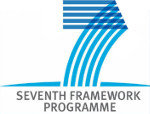Promising nanomaterials in the fight against malaria
Neves Borgheti-Cardoso, L. ; San Anselmo, M. (Universidad de Zaragoza) ; Lantero, E. ; Lancelot, A. ; Serrano, J.L. (Universidad de Zaragoza) ; Hernández-Ainsa, S. (Universidad de Zaragoza) ; Fernàndez-Busquets, X. ; Sierra, T. (Universidad de Zaragoza)
Resumen: For more than one hundred years, several treatments against malaria have been proposed but they have systematically failed, mainly due to the occurrence of drug resistance in part resulting from the exposure of the parasite to low drug doses. Several factors are behind this problem, including (i) the formidable barrier imposed by the Plasmodium life cycle with intracellular localization of parasites in hepatocytes and red blood cells, (ii) the adverse fluidic conditions encountered in the blood circulation that affect the interaction of molecular components with target cells, and (iii) the unfavorable physicochemical characteristics of most antimalarial drugs, which have an amphiphilic character and can be widely distributed into body tissues after administration and rapidly metabolized in the liver. To surpass these drawbacks, rather than focusing all efforts on discovering new drugs whose efficacy is quickly decreased by the parasite''s evolution of resistance, the development of effective drug delivery carriers is a promising strategy. Nanomaterials have been investigated for their capacity to effectively deliver antimalarial drugs at local doses sufficiently high to kill the parasites and avoid drug resistance evolution, while maintaining a low overall dose to prevent undesirable toxic side effects. In recent years, several nanostructured systems such as liposomes, polymeric nanoparticles or dendrimers have been shown to be capable of improving the efficacy of antimalarial therapies. In this respect, nanomaterials are a promising drug delivery vehicle and can be used in therapeutic strategies designed to fight the parasite both in humans and in the mosquito vector of the disease. The chemical analyses of these nanomaterials are essential for the proposal and development of effective anti-malaria therapies. This review is intended to analyze the application of nanomaterials to improve the drug efficacy on different stages of the malaria parasites in both the human and mosquito hosts. This journal is
Idioma: Inglés
DOI: 10.1039/d0tb01398f
Año: 2020
Publicado en: Journal of Materials Chemistry B 8, 41 (2020), 9428-9448
ISSN: 2050-750X
Factor impacto JCR: 6.331 (2020)
Categ. JCR: MATERIALS SCIENCE, BIOMATERIALS rank: 12 / 40 = 0.3 (2020) - Q2 - T1
Factor impacto SCIMAGO: 1.316 - Biomedical Engineering (Q1) - Medicine (miscellaneous) (Q1) - Materials Science (miscellaneous) (Q1) - Chemistry (miscellaneous) (Q1)
Financiación: info:eu-repo/grantAgreement/ES/DGA-FEDER/E47-20R
Financiación: info:eu-repo/grantAgreement/EC/FP7/321570/EU/EUROpean network for transnational collaborative RTD projects in the field of NANOMEDicine/EURONANOMED II
Financiación: info:eu-repo/grantAgreement/EC/H2020/712754/EU/Postdoctoral Programme in Bioengineering Excellence Scientific Training/BEST
Financiación: info:eu-repo/grantAgreement/ES/MCIU/BES-2016-078774
Financiación: info:eu-repo/grantAgreement/ES/MCIU-FEDER/CTQ2017-90596-REDT
Financiación: info:eu-repo/grantAgreement/ES/MCIU-FEDER/PCIN-2017-100
Financiación: info:eu-repo/grantAgreement/ES/MCIU-FEDER/PGC2018-093761-B-C31
Financiación: info:eu-repo/grantAgreement/ES/MCIU-FEDER/PGC2018-097583-B-I00
Financiación: info:eu-repo/grantAgreement/ES/MCIU-FEDER/RTI2018-094579-B-I00
Financiación: info:eu-repo/grantAgreement/ES/MICINN/CEX2018-000806-S
Tipo y forma: Article (Published version)
Área (Departamento): Área Química Orgánica (Dpto. Química Orgánica)
Exportado de SIDERAL (2023-06-21-15:01:06)
Visitas y descargas
Idioma: Inglés
DOI: 10.1039/d0tb01398f
Año: 2020
Publicado en: Journal of Materials Chemistry B 8, 41 (2020), 9428-9448
ISSN: 2050-750X
Factor impacto JCR: 6.331 (2020)
Categ. JCR: MATERIALS SCIENCE, BIOMATERIALS rank: 12 / 40 = 0.3 (2020) - Q2 - T1
Factor impacto SCIMAGO: 1.316 - Biomedical Engineering (Q1) - Medicine (miscellaneous) (Q1) - Materials Science (miscellaneous) (Q1) - Chemistry (miscellaneous) (Q1)
Financiación: info:eu-repo/grantAgreement/ES/DGA-FEDER/E47-20R
Financiación: info:eu-repo/grantAgreement/EC/FP7/321570/EU/EUROpean network for transnational collaborative RTD projects in the field of NANOMEDicine/EURONANOMED II
Financiación: info:eu-repo/grantAgreement/EC/H2020/712754/EU/Postdoctoral Programme in Bioengineering Excellence Scientific Training/BEST
Financiación: info:eu-repo/grantAgreement/ES/MCIU/BES-2016-078774
Financiación: info:eu-repo/grantAgreement/ES/MCIU-FEDER/CTQ2017-90596-REDT
Financiación: info:eu-repo/grantAgreement/ES/MCIU-FEDER/PCIN-2017-100
Financiación: info:eu-repo/grantAgreement/ES/MCIU-FEDER/PGC2018-093761-B-C31
Financiación: info:eu-repo/grantAgreement/ES/MCIU-FEDER/PGC2018-097583-B-I00
Financiación: info:eu-repo/grantAgreement/ES/MCIU-FEDER/RTI2018-094579-B-I00
Financiación: info:eu-repo/grantAgreement/ES/MICINN/CEX2018-000806-S
Tipo y forma: Article (Published version)
Área (Departamento): Área Química Orgánica (Dpto. Química Orgánica)
Exportado de SIDERAL (2023-06-21-15:01:06)
Permalink:
Visitas y descargas
Este artículo se encuentra en las siguientes colecciones:
articulos > articulos-por-area > quimica_organica
Notice créée le 2020-12-16, modifiée le 2023-06-22

